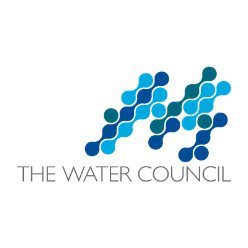Water Technology Cluster is a model for successful industry cluster initiatives nationwide, according to new Brookings report
The Water Council is cited as a successful model and national case study.
Milwaukee, Wis. – July 25, 2018 – A new report from the Brookings Metropolitan Policy Program argues that initiatives to support and grow industry clusters remain a potentially powerful strategy to jumpstart local economic growth, but only if certain market and civic fundamentals are in place. The report, Rethinking cluster initiatives, by Ryan Donahue, Brookings fellow Joseph Parilla, and Brookings nonresident senior fellow Brad McDearman, takes a fresh look at the concept of industry clusters—groups of firms that gain a competitive advantage through local proximity and interdependence—and offers practical guidance for metropolitan leaders considering investments in cluster initiatives, drawing on five in-depth case studies. The Water Council is cited as a successful model and national case study.
“We are honored to be showcased as a model of a successful industry cluster and would like to credit this recognition to a remarkable team and partners that have helped take our solid industry foundation and build us into a recognized world water hub,” stated Dean Amhaus, president and CEO of The Water Council. “Too often the term ‘cluster’ is loosely used to encompass many good intentions so I commend Brookings for truly capturing what it takes to be a viable cluster as it requires a great deal of forethought, patience, commitment, collaboration, and, just as the report references, sometimes it is more an art than science.”
Accordingly, the report aims to help regional leaders confidently and knowledgably pursue cluster initiatives where they make sense; and where they do not, recognize that there are potentially equally powerful alternatives.
“Milwaukee’s water technology hub represents one of the national models for identification and implementation of a cluster initiative. What really stands out to me is that it positions the region at the center of solving a critical global challenge, provides Milwaukee with a new and compelling foothold in a fast changing economy, and represents a highly collaborative economic development effort that is industry driven, university fueled, and government funded,” said co-author Brad McDearman. “Further, it is a true branding effort that goes well beyond basic promotion. Significant investments have been made to ensure the local water technologies ecosystem matches the bold claim that Milwaukee is one of the world’s leading water centers.”
The authors note five distinct traits of successful cluster initiatives:
- Focused on establishing a robust ecosystem, not job gains
- Industry-driven, university-fueled, government-funded
- Placing a collective big bet on a unique opportunity
- Championed by passionate, dedicated leaders
- Anchored by a physical center
The full report draws on a literature review, interviews with cluster experts, and five in-depth case studies that reflect successful cluster initiatives focused on diverse industries, including bioscience and life sciences (Central Indiana), water technology (Milwaukee), agricultural technology (St. Louis), unmanned aerial systems (Syracuse) and the automotive industry (Upstate, South Carolina).
Read the full report
Read the Milwaukee Water Technology case study
The Metropolitan Policy Program at Brookings delivers research and solutions to help metropolitan leaders build an advanced economy that works for all. To learn more, please visit www.brookings.edu/metro. Follow us on Twitter at www.twitter.com/brookingsmetro.
Headquartered in the Global Water Center in Milwaukee, Wisconsin, next to the world’s largest freshwater system, The Water Council is a non-profit organization that drives economic, technology and talent development to support the global water industry. As the leading U.S. cluster, and one of the most powerful water technology hubs in the world, the organization convenes global water leaders and supports more than 190 members from small and mid-sized businesses and large global corporations to engineers, entrepreneurs, utilities, government agencies, education programs and non-profits, with valuable services, programming and networking opportunities. Learn more: www.thewatercouncil.com.
NOTE: This press release was submitted to Urban Milwaukee and was not written by an Urban Milwaukee writer. While it is believed to be reliable, Urban Milwaukee does not guarantee its accuracy or completeness.
Recent Press Releases by The Water Council
The Water Council Names Karen Frost as Executive Director
Jun 2nd, 2025 by The Water CouncilLongtime VP to lead organization following retirement of Dean Amhaus
The Water Council Expands Water Stewardship Programming
Mar 19th, 2025 by The Water CouncilWAVE: Action will help companies set meaningful water-related targets
Six Countries Represented in 2025 BREW Cohort
Mar 12th, 2025 by The Water CouncilWater tech startups include first participants from Brazil
























